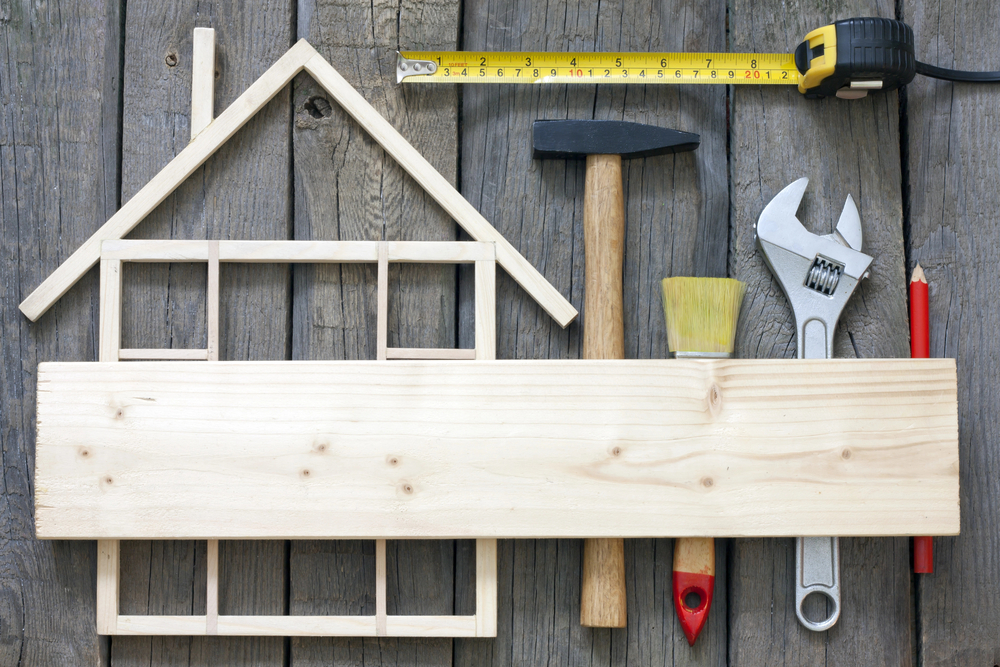Considering Home Renovations? These Ones May Be Tax Deductible
 When it comes to home renovations, many homeowners are unaware of the potential tax benefits they may be eligible for. Understanding which types of home improvements can be deducted on your taxes can save you money and maximize your tax benefits. Continue reading to learn about the various types of home renovations that may qualify for tax deductions, with detailed guidance from our experienced CPA professionals.
When it comes to home renovations, many homeowners are unaware of the potential tax benefits they may be eligible for. Understanding which types of home improvements can be deducted on your taxes can save you money and maximize your tax benefits. Continue reading to learn about the various types of home renovations that may qualify for tax deductions, with detailed guidance from our experienced CPA professionals.
Understanding Tax Deductions for Home Renovations
Before diving into specific types of renovations, it's crucial to understand the general principles behind tax deductions for home improvements. The Internal Revenue Service (IRS) allows deductions for certain home renovations that qualify as "improvements" to your property. These improvements typically add value to your home or prolong its useful life, rather than simply maintaining or repairing existing features.
To qualify for tax deductions, renovations must meet specific criteria set by the IRS, including being considered a capital expense and being made to your primary residence. It's important to keep detailed records, including receipts, contracts, and before-and-after photos, to substantiate your deductions in case of an IRS audit.
Types of Home Renovations That May Qualify for Tax Deductions
Naturally, upgrading your home for the sake of curb appeal or generally improved aesthetic is not going to merit a tax deduction. Only very specific types of renovations will have a chance of qualifying. These include the following:
- Energy-Efficient Upgrades: One of the most common types of home renovations that may qualify for tax deductions are energy-efficient upgrades. These include installing solar panels, energy-efficient windows, doors, and insulation, as well as upgrading heating, ventilation, and air conditioning (HVAC) systems to more energy-efficient models. The IRS offers tax credits for certain energy-efficient improvements through the Residential Energy Efficient Property Credit and the Nonbusiness Energy Property Credit. These credits can offset a portion of the costs incurred for qualifying renovations, providing substantial tax savings for eligible homeowners.
- Accessibility Improvements: For homeowners making renovations to improve accessibility for individuals with disabilities or elderly family members, there are potential tax deductions available. Qualifying accessibility improvements may include installing wheelchair ramps, widening doorways, adding grab bars in bathrooms, and modifying kitchen areas for wheelchair accessibility. The IRS allows deductions for these improvements as medical expenses if they are medically necessary and not merely for cosmetic purposes. To claim these deductions, you'll need documentation from a qualified medical professional certifying the necessity of the renovations for medical reasons.
- Home Office Renovations: With the rise of remote work and entrepreneurship, many homeowners are converting spaces within their homes into dedicated home offices. Renovations such as adding built-in desks, shelving, upgrading internet and phone lines, and enhancing the overall functionality of a home office may qualify for tax deductions. The IRS allows deductions for home office renovations that are exclusively used for business purposes and meet specific criteria outlined in IRS Publication 587. Keep detailed records of expenses related to your home office renovations, including square footage calculations and receipts for materials and labor.
- Disaster Recovery Renovations: In the unfortunate event of a natural disaster or casualty loss, homeowners may incur expenses related to repairing and rebuilding their homes. The IRS provides tax relief for disaster recovery renovations, allowing deductions for expenses not covered by insurance or other sources of reimbursement. Document all disaster-related renovations and expenses, including repairs to structural damage, replacement of damaged property, and mitigation measures to prevent future damage. Consult with a tax professional to ensure you maximize your deductions and comply with IRS guidelines for disaster-related tax benefits.
- Home Improvements for Rental Properties: If you own rental properties, certain renovations and improvements made to these properties may qualify for tax deductions. These improvements may include repairs, upgrades to appliances and fixtures, landscaping improvements, and renovations to attract tenants and increase rental income. Keep detailed records of expenses related to rental property renovations, including invoices, receipts, and contracts with contractors or service providers. Consult with a tax advisor to determine which renovations qualify for deductions and how to properly allocate expenses between personal and rental use.
Consult with Demian & Company CPAs for Personalized Tax Planning
Navigating the complexities of tax deductions for home renovations requires expertise and guidance from experienced tax professionals. At Demian & Company CPAs, our team can help you maximize your tax benefits while ensuring compliance with IRS regulations. Contact us today to schedule a tax-planning consultation and learn how you can benefit from tax deductions for your home renovations. Our dedicated professionals will work closely with you to identify eligible deductions, maximize tax savings, and provide personalized guidance tailored to your specific situation. Consult with Demian & Company CPAs to explore your options and ensure you take full advantage of available tax deductions for your home renovations.